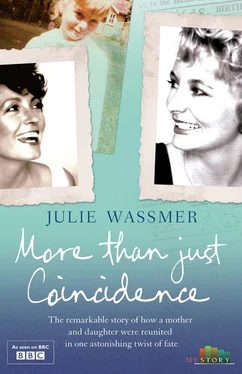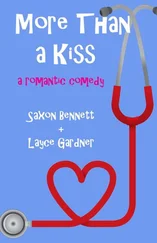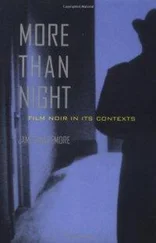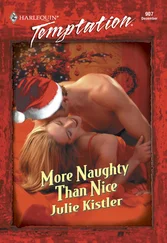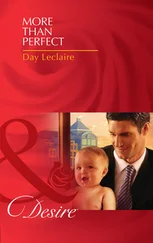Years later I would discover that my roots are a mixture of French Jewish and Irish Catholic, but on my first day at senior school, I was happy to be whatever they wanted me to be.
The CFS had stood in Spital Square since 1890, but dated back to a much earlier era. It had been endowed as a free charity school for boys and girls in 1726, but had very probably existed as a parochial charity school since 1702. The Edwardian red-brick building was bordered on one side by Spitalfields fruit market, where I had to pick my way through squashed, sometimes rotten fruit to reach the gates. Often I would come across hard-up East Enders or refugees sorting through it to rescue the more edible specimens. On the other side was Bishopsgate, gateway to the City, its banks and its money, and a couple of miles further on, the West End.
This location, at the midway point between East End and West End, seemed an apt metaphor for how I would come to see myself in my grammar school years: suspended in a no-man’s-land between a past I was being educated out of and a future still beyond my reach.
At primary school I had benefited from a progressive approach that treated education as a springboard to social mobility and mirrored the changing times. Walking through the door of the CFS, by contrast, was like stepping into the past. The grammar school (motto: S pe Labore Fide —by hope, by work, by faith) clung resolutely to its traditions and its illustrious history. Instead of drama there was elocution, long afternoons spent trying to recite Keats’ odes without giving yourself away with the merest suggestion of a flattened Cockney vowel. Latin mistresses led us through the tedious declension of nouns. The only hint of the Swinging Sixties was the occasional polka-dot mini-skirt a brave young supply teacher might dare to wear. Our headmistress, the jealous guardian of the school’s antiquated standards and customs, was apparently unaware of any smashing down of class barriers. Her pride and joy was the board that hung outside her office displaying, in gold lettering, the names of all the girls who had gone on to Oxbridge. Katharine Whitehorn’s later description of tradition as ‘habit in a party frock’ would have found no resonance here.
In truth the school was already an anachronism by the time I entered its hallowed portals. The expansion of the comprehensive system, where state schools did not select their pupils on the basis of academic achievement, was already underway and the election of a Labour government the very next month escalated the demise of the grammar school in all but a handful of areas of the country. The Central Foundation School was duly obliged to go comprehensive and in 1975 would relocate to new premises in Bow.
In my first year I worked hard and came top of the class in nearly all subjects. Subsequent years were a different matter, however, as it became increasingly evident that I’d been hot-housed by my trendy primary school and then dumped in an institutional backwater. It was Goodbye Mr Chips minus the charismatic teacher. The school refused to acknowledge that I was finding certain subjects difficult: in their eyes, I was simply not trying hard enough. I had been put into the top stream to work towards O-Level maths, for example, but when the lessons became more advanced and I began to lag behind they refused to allow me to drop down into the CSE stream. If they had done so, I might have coped better. It would also have given me the opportunity to study other subjects for which I showed more flair and interest, such as music. It was as though the school was determined I should not be permitted to benefit from my lack of effort, even though the reason behind it was a lack of aptitude.
My dad still bragged at the Bridge House about his clever kid but the only subjects in which I maintained good grades were English, foreign languages and history. In other lessons I acted the clown, entertaining my classmates with my updated repertoire of impressions, which now included Cilla Black and Sandie Shaw. My school reports showed how badly I was trailing in maths and sciences and my father was frustrated. I had lost interest in school but he made excuses for me, knowing it was difficult for me to concentrate on homework without a room of my own.
Concerns about my academic performance took a back seat when Uncle Johnny became ill. He had suffered health problems ever since the war, during which he’d served in the Royal Army Medical Corps, attached to The West African Frontier Force. He had been injured during the D-Day landings and my mother often spoke of how he had arrived home in a pitiful condition, stricken by dysentery. Now when we visited Riverside Mansions there were no afternoons spent singing in the Jolly Sailor. My cousins and I were told to keep quiet: their father had terminal cancer. Uncle Johnny struggled up and down the stairs, yellow with jaundice, his face contorted by pain. At the end of the war his unit had also helped to liberate Belsen; now, in the last days of his life, he looked like one of its victims. When he finally died, my mother collapsed.
Shortly after the cremation, she went off one evening to the Bridge House with my father. She returned drunk, in distress and arguing with him. My dad told her to pull herself together and accept that Uncle Johnny was gone but she continued to rail at him. Swaying in the tiny kitchenette, she stumbled, fell under the table and lay there crying out in pain like a wounded animal. I had never seen anyone so bereft and tried to help her to her feet but it was impossible. Although she was slightly built she was a dead weight, heavy with sorrow and alcohol. I looked to my father but, still smarting from their row, and possibly trying to allay my anxiety, he seemed uncharacteristically cold and distant. ‘Just leave her where she is,’ he ordered. I hesitated, unsure of what to do.
As he walked through to the living room, my mother suddenly gathered her strength and chose a target for her rage and grief. ‘I wish it had been you instead of him!’ she screamed.
I didn’t need to see my father’s face to know what a terrible thing she had just said. She knew it too. Still slumped under the table, she began to wail. My loyalties were torn. I was a kid. What was I to do? I stood up and made a decision. I did what my father had told me to do. I left my mother on the kitchen floor to cry herself to sleep. In the morning she got ready and went off to work without uttering a word about what had happened the night before.
That incident was shocking, not least because it was never mentioned. If I had always been aware of my mother’s fragility, now I had seen her behaving more like a child than a parent. Worse, my father, her steadfast protector, had turned his back on her that night, and I had abandoned her, too. Perhaps I had realised that I couldn’t be her mother, and she couldn’t absolutely be mine. If I had always instinctively avoided rocking the boat at home, from that moment on I made a conscious effort to ensure she was never upset.
I had come to understand something significant: in general grown-ups might be able to sweep away problems and fears, but in my family it was probably best to keep unpalatable truths, and your feelings, to yourself.
Chapter Four Rebel Without a Cause
On a summer’s afternoon I am sitting in a French lesson singing, along with my classmates, a French song about a shepherdess.
Il était une bergèreet ron ron ron petit pataponIl était une bergèrequi gardait ses moutons, ron ronqui gardait ses moutons.
Unable to concentrate in the heat, and because of a dragging pain low in my belly, I keep forgetting the words. I feel wretched, uncomfortable and out of sorts, and beads of sweat are breaking out on my forehead. At last the bell rings and as I get to my feet I know instantly that something isn’t right. I make for the toilets.
Читать дальше
